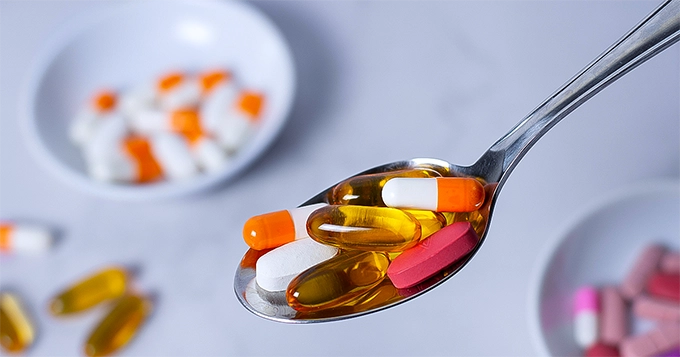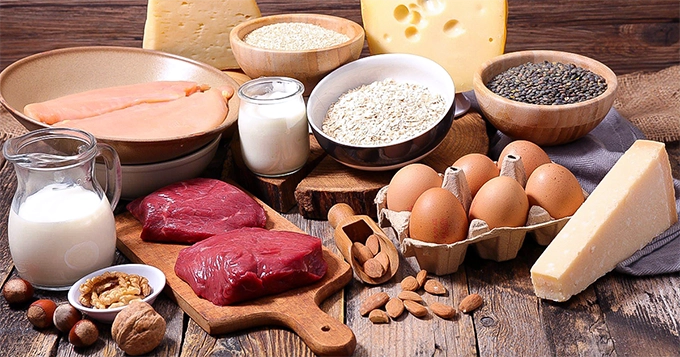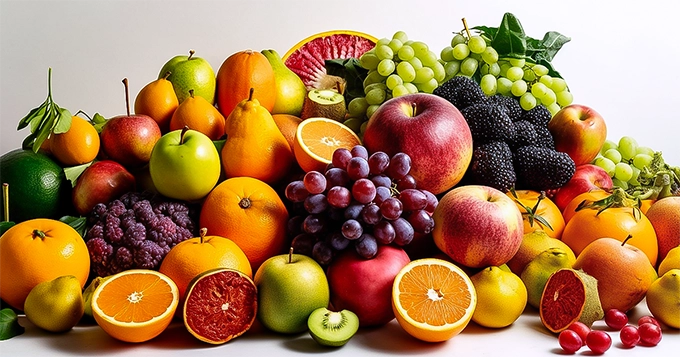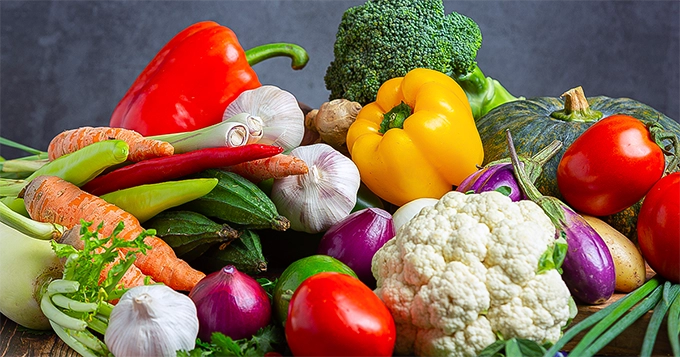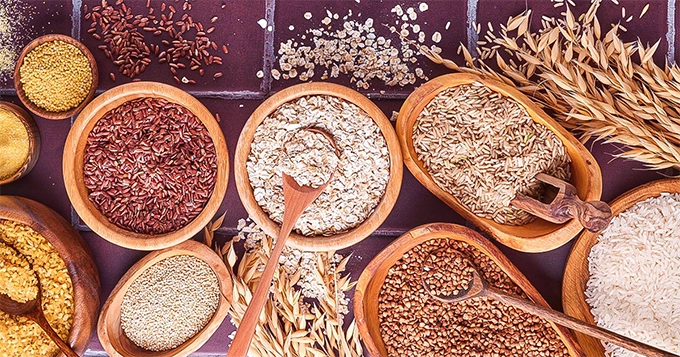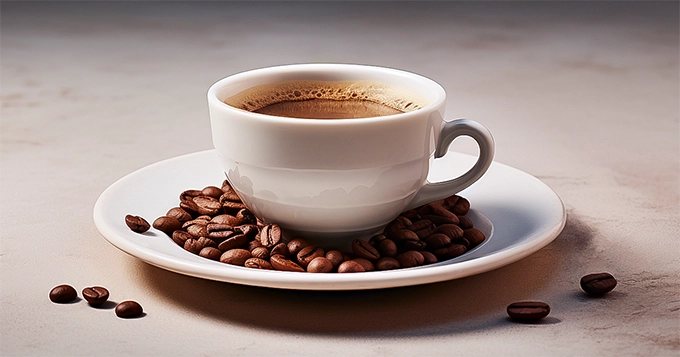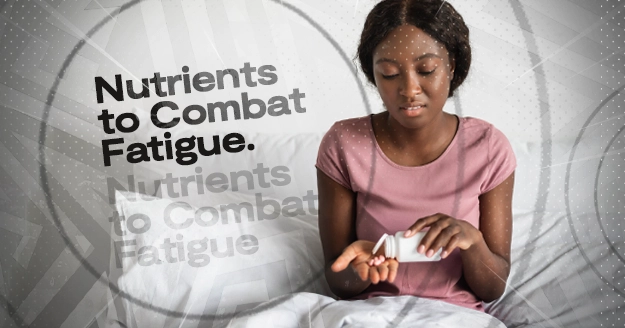Fatigue is referred to as a state of continual depletion, burnout, or loss of energy. It can be mental, physical, emotional, or a combination of all three.
Performance can be impacted by fatigue in a number of different ways. People who are fatigued have shorter response times, are more easily distracted, have trouble focusing, tend to forget information easily, take longer to solve problems, and are often not in a good mood.
It’s important to know that fatigue is not a condition but usually a symptom. Instead of being the result of an underlying medical condition, fatigue affects a lot of people due to a mix of lifestyle, social, psychological, and general health issues.
A way you can recover is by eating foods to fight fatigue. Consuming healthy foods provides your body with energy from the nutrients you get.
Nutrients That Help Fight Fatigue
Nutrients give us energy and enable our bodies to carry out their necessary tasks.
Protein and carbs must be taken into consideration while seeking anti-fatigue agents. You get immediate energy from carbs, which are found in sweet meals and grains, but your energy quickly runs out.
Protein and the following nutrients are better for endurance—long-lasting energy.
- B vitamins
The most frequently linked B vitamins to fatigue and energy are folate, vitamin B6, and vitamin B12. These vitamins are necessary for metabolizing lipids, proteins, and carbs and for stabilizing energy levels.
- Carnitine
Carnitine is essential In the process of producing energy. It is a crucial cofactor that facilitates the entry of long-chain fatty acids into the mitochondria, which can be oxidized to release adenosine triphosphate as energy.
- CoQ10 (Coenzyme Q10)
There is evidence that coQ10 can help with fatigue symptoms. In contrast to serum CoQ10, which negatively corresponded with the severity of exhaustion, a study comparing patients with depression and chronic fatigue syndrome with healthy volunteers revealed that CoQ10 deficiency was positively associated with fatigue.
- Creatine
When you workout, your cells use ATP as a source of energy. Therefore, creatine helps keep your muscles’ energy supply constant during vigorous lifting or activity. Creatine aids in: Increasing muscular growth; Increasing energy; and Quickening muscle recovery.
- Iron
Hemoglobin, a protein molecule found in red blood cells that delivers oxygen to every cell in your body, is produced by your body using iron. You may experience fatigue if your iron levels are low because your cells won’t receive the oxygen they require.
- Magnesium
Magnesium aids in lowering tiredness and exhaustion. The mineral is crucial for preserving regular nervous system function. A magnesium deficit may hamper nerve impulse transmission. Additionally, it might reduce circulation.
- Protein
Proteins are the best anti-fatigue substance. Foods that reduce weariness include beans, tofu, cottage cheese, and sprouts. Magnesium, which helps replenish energy levels, is abundant in most of them.
- Potassium
The initial indicators of a potassium deficit are frequently weakness and weariness. When levels of potassium are low, the muscles contract more slowly and weakly. Potassium helps control muscular contractions. The body’s decreased capacity to absorb nutrients is probably what causes fatigue.
The Best Food to Fight Fatigue
Protein-rich foods
Keep in mind that protein promotes endurance and that combining it with carbs can provide you with both short-term and long-term energy.
Protein can be used as an energy source. Animal-based protein-rich foods include meat, fish, eggs, and dairy. But if you’re looking for plant-based and vegan protein, you can opt for extra firm tofu (or just regular tofu), nuts, seeds, beans, peas, and lentils.
Fruits
Fruit is a great source of vitamins and minerals, including those that aid in generating energy in your body. The healthiest fruit to eat is fresh, whole fruit since dried or older fruit might lose important nutrients.
These foods to fight fatigue include watermelon, banana, dates, apples, oranges, lemons, blueberries, strawberries, goji berries, and cantaloupe.
Some low-sugar fruits you can opt for are limes, rhubarb, apricots, cranberries, guava, raspberries, kiwi, figs, blackberries, tangerines, and grapefruit.
Vegetables
Vegetables contain a lot of nutrients that provide you with energy. Also, even while they don’t provide as much protein as foods like meat, eggs, dairy, almonds, and beans, vegetables nevertheless give you protein.
Complex carbohydrates are found in starchy vegetables like sweet potatoes, squash, and pumpkin that provide the body with long-lasting energy and lessen between-meal appetite. They also contain high levels of other vital energy micronutrients, such as vitamin C.
But if you’re looking for low-carb vegetables that can fuel your body, green and/or leafy vegetables will be your friends. These include spinach, kale, zucchini, brussels sprouts, and broccoli.
Grains
Grains are a good supply of nutrients for long-lasting energy as well as carbs for immediate energy. Check for whole-grain versions of your favorite foods if you want sustained energy. Excellent options for grains include quinoa, brown rice, oatmeal, whole-wheat pasta, and whole-wheat bread, buns, or wraps.
Brown rice, oatmeal, and whole wheat are commonly found in breakfast cereals, which are also often enriched with vitamins and minerals, making them effective sources of anti-fatigue nutrients.
Milk Substitutes
Popular milk substitutes provide multiple nutrients that give you energy. They are either naturally rich in these nutrients or fortified.
However, since these are processed and have added ingredients such as water, some nutrients might be low.
For instance, almond milk has high levels of potassium but has small amounts of magnesium, iron, and protein. Rice milk has small amounts of protein and B vitamins. Soy milk has high levels of potassium and moderate levels of B vitamin (riboflavin), magnesium, and protein.
Brands and recipes affect the precise amounts of these nutrients. Some may be fortified and hence include more nutrients. Reading the labels is the most effective technique to determine exactly what you’re getting.
Are coffee and tea good foods that fight fatigue and depression?
Coffee and tea contain caffeine. Caffeine can improve mood, lower the risk of depression, and enhance cognitive performance.
Although caffeine offers you immediate energy, it is a stimulant, which means that it speeds up rather than nourishes your body’s functions. It can make you jittery and nervous, and can interfere with your sleep, especially if you consume a lot of caffeine late in the day.
But on top of that, it can be particularly harmful to those who suffer from illnesses like fibromyalgia and chronic fatigue syndrome that cause reduced energy production. Because they give the body a false sense of vitality and then drain the body even more than normal, some specialists on these conditions refer to coffee and other stimulants as “checks your body can’t cash.”
Conclusion
Ensure to discuss your lack of energy with your doctor if it seems to persist. It might be brought on by lifestyle choices like excessive stress levels or insufficient sleep, but it could also be brought on by nutrient deficiencies or an undiscovered illness. Whatever the reason, making better nutritional choices and eating foods to beat fatigue is a good idea.

